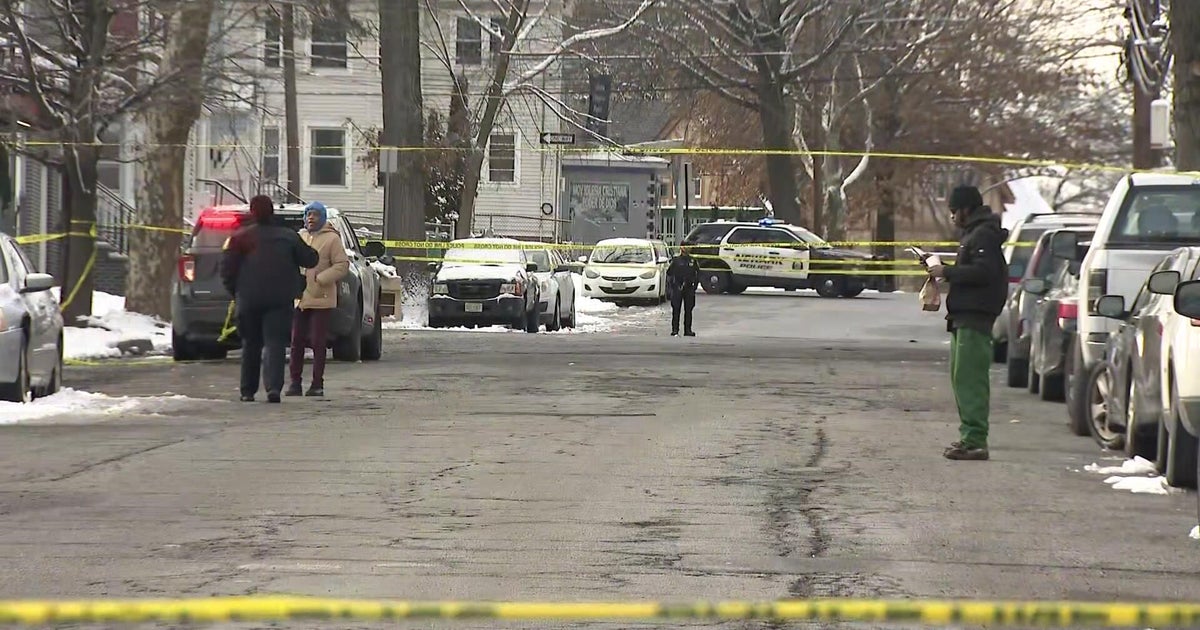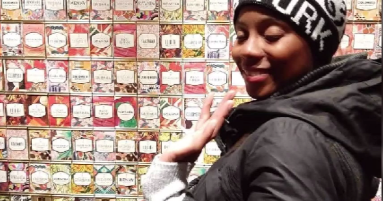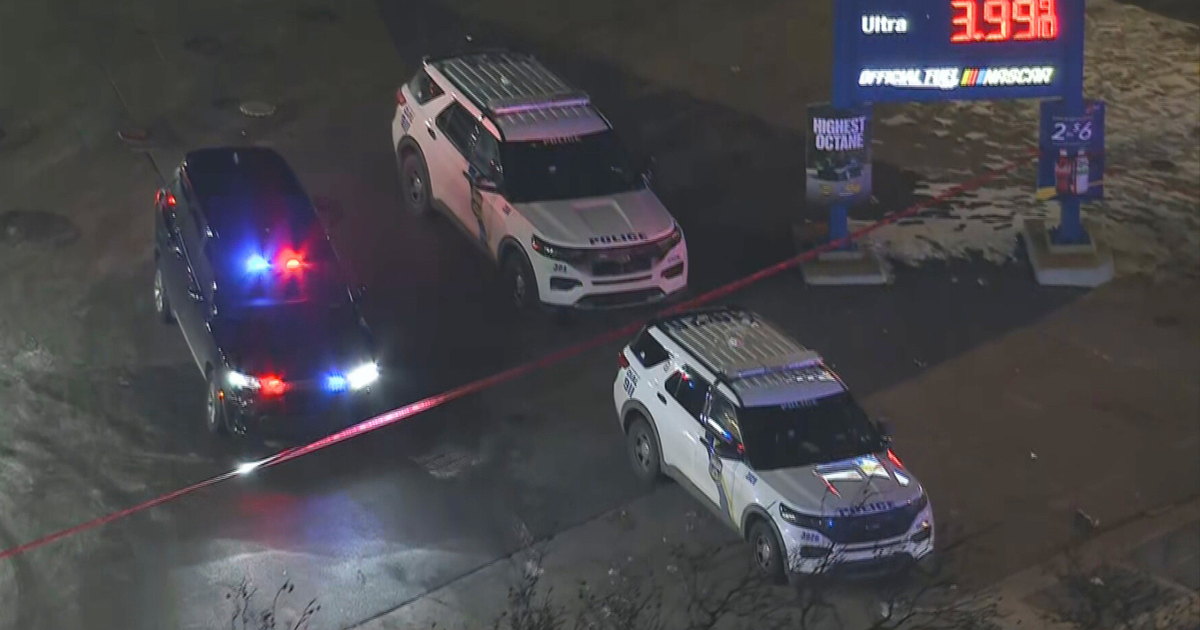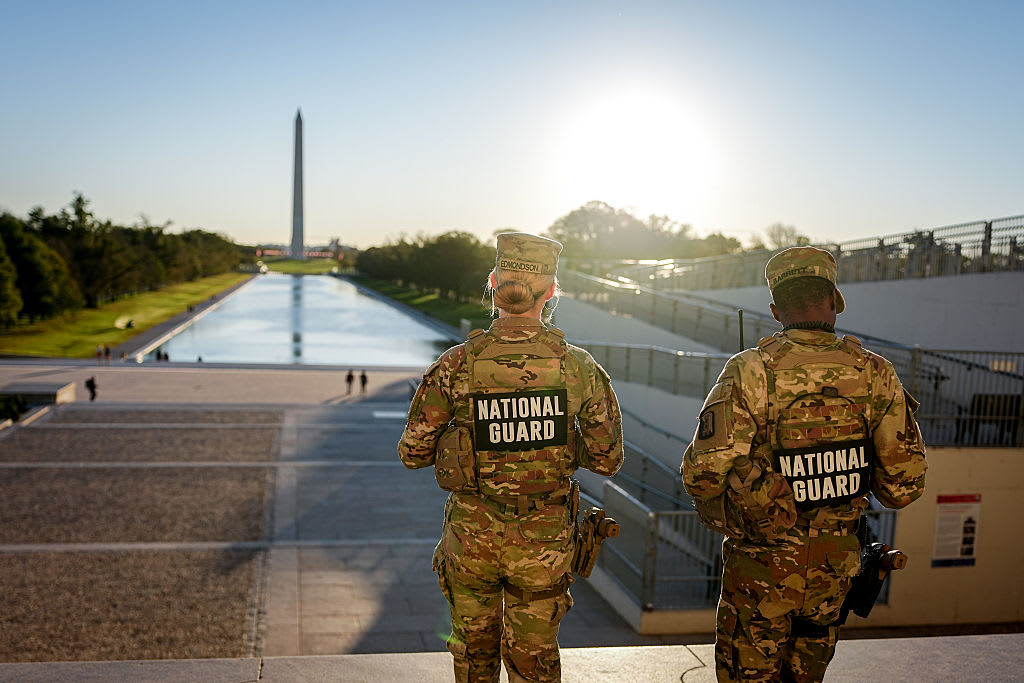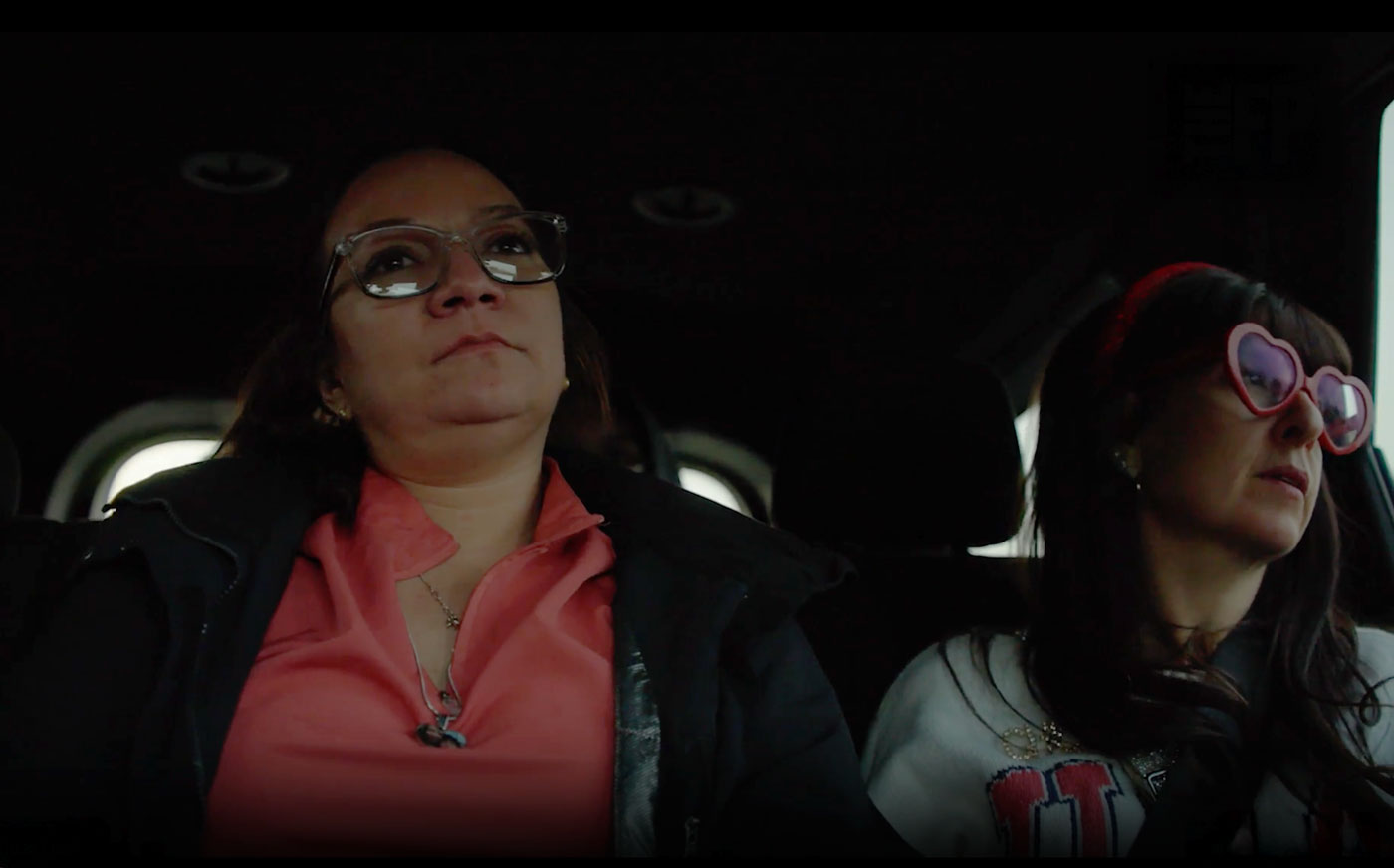State police contradict witness accounts of black security guard's killing by officer
ROBBINS, Illinois -- In their first official account of the police shooting that killed an armed black security guard outside a bar in suburban Chicago early Sunday, Illinois State Police say the guard, Jemel Roberson, ignored an officer's "multiple verbal commands" to drop his gun and get on the ground. The state police account contradicts witnesses who say Roberson, 26, was wearing clothing that identified him as a security guard; police say he was wearing "plain black clothing with no markings."
State police are investigating the shooting by the white officer from the Midlothian Police Department, who has not been identified. Protesters gathered Tuesday outside the Midlothian Police headquarters, some carrying portraits of Roberson, an aspiring police officer who played the organ at his and other area churches. A family attorney has said the young man was a father and that his girlfriend is pregnant with their second child.
Wednesday, community activists held a rally to call for Cook County State's Attorney Kimberly Foxx to investigate the shooting and for the officer involved to resign.
"This young man has a nine-month-old son -- he'll never see his child grow up," said local pastor Anthony Williams. "This young man wanted to be a police [officer.] This young man was a child of God -- he worked in the church and lost his life, unfortunately, so we want justice."
Police said a gunman had entered Manny's Blue Room Lounge in Robbins early Sunday morning, and shot and wounded multiple people inside the bar. When officers arrived at the scene, Roberson was holding down a suspect on the ground outside the bar, witnesses told CBS Chicago.
"A Midlothian Police Officer encountered a subject in plain black clothing with no markings readily identifying him as a Security Guard, armed with a gun in the west parking lot," state police said late Tuesday. "According to witness statements, the Midlothian officer gave the armed subject multiple verbal commands to drop the gun and get on the ground before ultimately discharging his gun and striking the subject."
Illinois State Police said the investigation later determined that the "armed subject" was a security guard and was "attempting to subdue a subject believed to be involved in the initial shooting" when he was killed.
An attorney for Roberson's mother says Roberson was wearing a hat emblazoned with the word "security" when he was shot. Gregory E. Kulis, who filed a lawsuit contending the shooting was unjustified and unprovoked, said the police release is woefully incomplete.
For starters, he said witnesses have told him that they yelled repeatedly both before and as the officer raised his weapon that Roberson was a security guard. Kulis suggested it's possible there was no mention of Roberson's knit cap because witnesses said it came off as emergency workers tried to administer CPR.
Another security guard at the tavern said the officer jumped onto the bar and waved an assault rifle before running outside and fatally shooting the guard, Kulis said.
Kulis said the surviving guard told him that the officer pointed a gun at him until he screamed at him that he was a security guard.
"That's when he jumped off the bar, waving the gun, and ran outside the door," said Kulis, who declined to identify the other security guard.
An official in a neighboring community has echoed the call for prosecutors to investigate, saying he's concerned race played a role in the shooting.
"Here is a security guard who is subduing a suspect," but the officer "just sees a black man with a gun and kills him," Alderman Keith Price said.
Kulis would not say if he thinks race played a role in Chicago-area shooting, but the fact that the officer is white and Roberson was black has prompted some — including a prominent local African-American newspaper columnist — to question the officer's thinking.
"I believe a police officer showing up at a chaotic scene where a white man has a gun would have at least hollered for him to put the gun down before opening fire," Chicago Sun-Times columnist Mary Mitchell wrote after the shooting. "But too often, black men are not given the benefit of the doubt."
The Illinois State Police wouldn't respond to a series of questions from CBS News, including regarding the contradictory accounts of Roberson's clothing, how much time elapsed between the time the officer shouted commands and opened fire, whether video exists of the shooting, whether the officer pointed his gun at another security guard, and how they respond to those who say race played a role.
A spokesman said the investigation is ongoing and no further information outside of the statement would be released at this time.
In an initial statement, Midlothian Police Chief Daniel Delaney said only that the officer shot "a subject with a gun." The officer has been placed on administrative leave, which is standard in such shootings until the investigation is complete, the chief said.
Delaney later issued a statement Tuesday saying that there were conflicting reports immediately after the shooting about whether Roberson was a suspect or a security guard, reports the Chicago Tribune.
Delaney said in the statement: "Jemel Roberson was a brave man who was doing his best to end an active shooter situation at Manny's Blue Room."
"The Midlothian Police Department is completely saddened by this tragic incident and we give our heartfelt condolences to Jemel, his family and his friends. There are no words that can be expressed as to the sorrow his family is dealing with," the statement says.
Kulis said he is trying to gather information about the officer, who he said came to the Midlothian department four years ago from another department and is a member of a SWAT team.
"Where is the footage?"
Price, the alderman, said he learned from witnesses that there are security cameras inside and outside the bar.
Footage from surveillance or body cameras could explain whether Roberson was clearly identifiable as a security guard. Audio could determine what, if anything, was said to the officer before the shooting and whether, as witnesses have told the media, they shouted to the officer before he fired that Roberson was a security guard.
Such footage could also help investigators determine what kind of charges should be filed against the man who is suspected of firing a gun inside the bar. The man was one of four people who suffered non-life threatening gunshot wounds. Some community members have called for the release of any video, reports CBS Chicago.
"They say there's footage. Where is the footage? Let due process properly take its place in terms of what happened here," pastor Mitchell Lee Hicks told the station.
If any police bodycam video exists, no state law requires that it be released. The Chicago Police Department releases video within 90 days of a shooting, but that policy does not apply because that agency's officers were not involved.
Kulis also said he doesn't yet know how many times Roberson was shot or where on his body he was shot.
"I talked to the family after they viewed his body and they said they (authorities) did not tell them how many times he'd been shot," he said.
In his $1 million federal lawsuit, Kulis contends that the officer who shot Roberson violated the man's 4th Amendment rights against unreasonable searches and seizures.
"The use of force is considered a seizure, and he needed probable cause to use force and he did not have that," he said.


